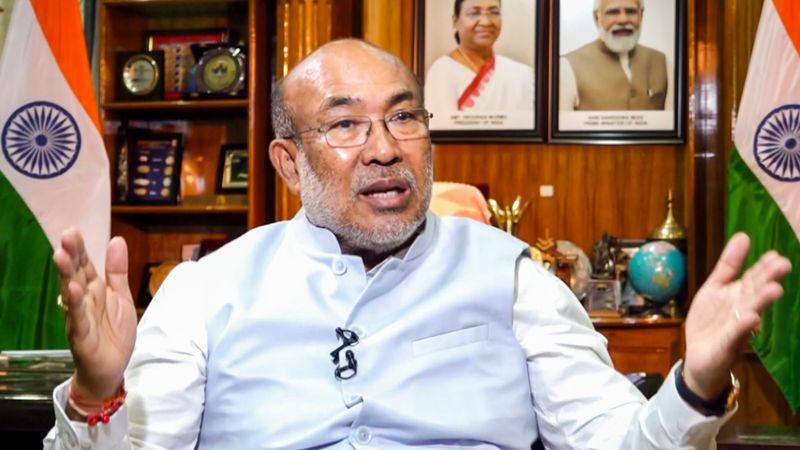
Don’t have to Protect the Wrong: SC on Biren’s Alleged Audio Clips
The Supreme Court of India has recently issued a significant directive in a case related to alleged audio clips featuring former Manipur Chief Minister N Biren Singh, casting doubt on the credibility of a sealed cover Central Forensic Science Laboratory (CFSL) report. The Court’s order has sparked a controversy, with many questioning the role of the CFSL and the authorities involved in the investigation.
Background of the Case
The controversy surrounding N Biren Singh, a prominent politician from Manipur, began when audio clips allegedly featuring him making provocative statements were leaked to the media. The clips purportedly showed Singh, who was the Chief Minister of Manipur at the time, making comments that were perceived as inflammatory and divisive, sparking ethnic violence in the state.
The CFSL, a government agency responsible for forensic analysis, conducted an investigation into the authenticity of the audio clips. The agency submitted a sealed cover report to the Supreme Court, which was kept confidential due to its sensitive nature.
SC’s Directive
Recently, the Supreme Court directed the Centre to submit a fresh report from the CFSL, casting doubt on the credibility of the original report. The Court’s order was in response to a petition filed by N Biren Singh, who sought to quash the investigation into the alleged audio clips.
In its order, the Supreme Court emphasized that there is no need to protect any individuals involved in wrongdoings related to ethnic violence in Manipur. The Court’s remarks were seen as a strong indication that it is not convinced by the CFSL’s report, which was used to justify the investigation into Singh’s alleged involvement in the controversy.
What does the SC’s Order Imply?
The Supreme Court’s directive has significant implications for the case. It implies that the CFSL’s report, which was the primary evidence used to investigate Singh’s alleged involvement in the controversy, may not be credible. The Court’s order also suggests that there may be political or other agendas at play, which could have influenced the investigation.
The SC’s emphasis on not protecting individuals involved in wrongdoings is also noteworthy. This suggests that the Court is willing to take a strong stance against those who perpetuate violence and division, regardless of their political affiliations or social standing.
What’s Next?
The Supreme Court’s order has set the stage for a fresh investigation into the alleged audio clips. The Centre will now have to submit a new report from the CFSL, which will be subject to scrutiny by the Court.
The development has also sparked fresh controversy, with many calling for a thorough investigation into the authenticity of the audio clips and the role of the CFSL in the investigation. The case is likely to have significant political and social implications, particularly in Manipur, where ethnic violence has been a recurring issue.
Conclusion
The Supreme Court’s directive in the case of N Biren Singh’s alleged audio clips is significant, as it questions the credibility of a sealed cover CFSL report and emphasizes the need to protect the rights of all individuals, regardless of their political affiliations or social standing. The case is a reminder of the importance of a fair and transparent investigation, and the need for the authorities to respect the rule of law and the rights of all citizens.






